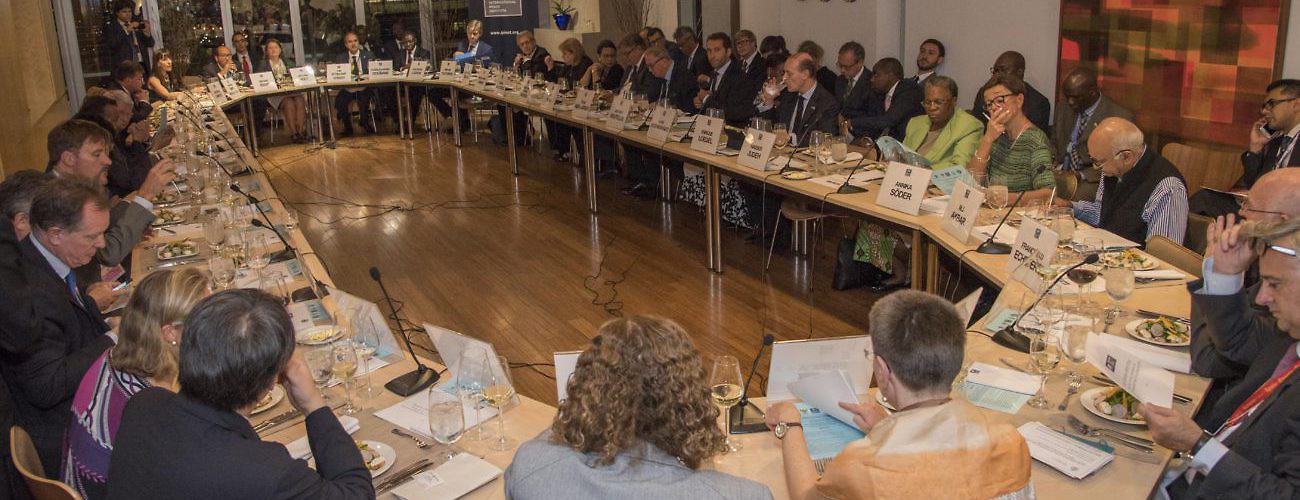Forty foreign ministers and high-level officials, as well as Under-Secretary-General of the United Nations Department of Peacekeeping Operations Hervé Ladsous, gathered at IPI on September 21, 2016 to review the progress made in implementing of the recommendations outlined in the report of the High-Level Independent Panel on United Nations Peace Operations (HIPPO). They also discussed key future actions by the next UN secretary-general.
The working dinner, entitled “Taking Stock, Looking to the Future: A High-Level Dialogue on United Nations Peace Operations,” was hosted jointly by IPI President Terje Rød-Larsen and the foreign ministers of Finland, Indonesia, Rwanda, and Uruguay. For the fourth-year anniversary of this event, IPI’s Brian Urquhart Center for Peace Operations prepared an infographic highlighting the status of implementation of the HIPPO, as well as recommendations for the next secretary-general and member states, moving forward.
Other attendees included the Foreign Ministers of Argentina, Ethiopia, Central African Republic, Mongolia, Niger, Liberia, Netherlands, Sierra Leone, Slovakia, as well as high-level representatives from capitals of Angola, Brazil, Canada, Chile, Colombia, Denmark, Egypt, France, Germany, India, Ireland, Japan, Korea, Mexico, Norway, Pakistan, Spain, Sweden, Turkey, United Kingdom, and the United States. The conversation was conducted under the Chatham House rule of non-attribution.
Member state representatives highlighted progress made in the implementation of the HIPPO, notably on the side of peacekeeping capabilities and troop pledges. They, however, recognized the need to improve the performance and preparedness of troops. While acknowledging the creation of a planning and analysis cell in the executive office of the secretary-general, participants called for better integrated and strategic analysis and planning, starting from the top of the organization. They also emphasized the need for political strategies to guide and accompany a full spectrum of truly integrated peace operations, whether carried out by the UN or in partnership with regional organizations, that can make a difference on the ground and better respond to new challenges of the 21st century, including that of asymmetric violence and terrorism.
Participants stressed shifting away from reaction and developing better, and more, prevention and mediation efforts and mechanisms. Also key, they said, was assessing root causes of conflict, as well as taking into consideration social, development and human rights aspects. They underlined that the new commitment to sustaining peace could further help in breaking the silos between the three pillars of the UN, bring more coherence to activities in the field and ensure people-centric operations. Participants, however, lamented that there had been little progress overall on women’s representation, especially in leadership positions.
The dinner concluded by acknowledging the importance of the shared responsibility of member states and the secretariat to support the implementation of the recommendations of the HIPPO, and on the need for all to keep the momentum and encourage the next secretary-general to focus on concrete actions and show leadership in addressing those outstanding challenges.








